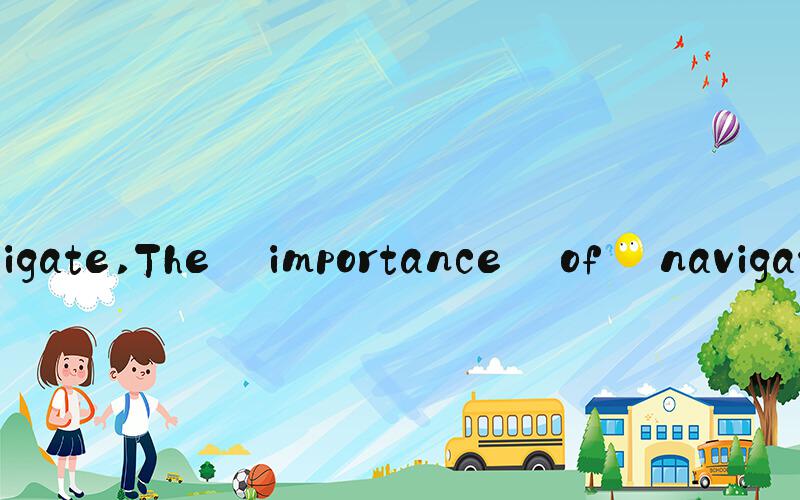AI答案
 What is navigation?
What is navigation?Navigation is the process of determining and following a course from one location to another. It can be done by using various methods, such as maps, compasses, GPS devices, or simply by following landmarks or signs. Navigation is an essential skill for travelers, sailors, pilots, hikers, and anyone who needs to get from one place to another.
The importance of navigationNavigation is crucial because it helps us to reach our destination safely and efficiently. Without navigation, we would get lost and waste time and resources trying to find our way. Navigation also helps us to avoid danger, such as getting lost in the wilderness or navigating through treacherous waters. In addition, navigation is important for commerce and transportation, as it enables goods and people to be transported across long distances efficiently.
The history of navigationNavigation has been around for thousands of years, with early civilizations using the stars, sun, and moon to guide their travels. The ancient Greeks and Romans developed sophisticated methods of navigation, using landmarks, maps, and star charts to navigate by sea and land. In the Middle Ages, sailors in Europe began to use compasses to navigate the seas, and in the 15th century, the invention of the astrolabe and sextant enabled sailors to determine their latitude and longitude accurately.
Modern navigationToday, navigation has become much easier with the use of technology. GPS devices and mobile apps allow us to navigate through unfamiliar territory with ease, and many vehicles are equipped with navigation systems that provide turn-by-turn directions. However, it is still important to have basic navigation skills, especially in case of technology failure. Hikers, pilots, and sailors still rely on maps, compasses, and other traditional methods of navigation to reach their destinations.
Navigation challengesDespite the advances in navigation technology, there are still challenges to be faced. GPS signals can be disrupted by weather or obstructions, and navigation systems can fail. In addition, some environments, such as dense forests or urban areas, can make it difficult to get a clear signal. It is important, therefore, to always be prepared with alternative navigation methods and to have a backup plan in case of technology failure.
The future of navigationThe future of navigation looks promising, with new technologies being developed all the time. Self-driving cars and drones rely heavily on navigation systems to operate safely, and advancements in GPS technology have made it possible to track vehicles and cargo in real time. Navigation systems are also being developed for space exploration, as NASA and other organizations plan missions to Mars and beyond. As technology continues to evolve, navigation will become even more accurate, reliable, and essential to our daily lives.
